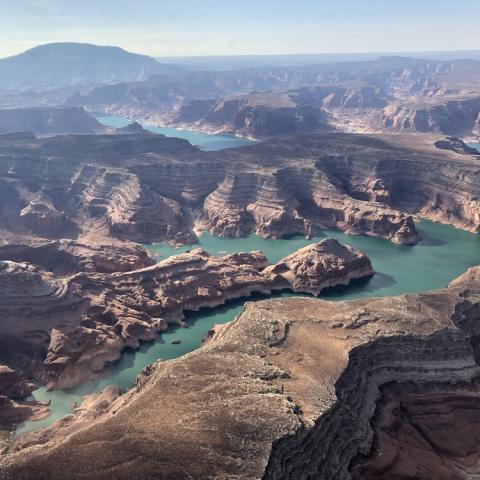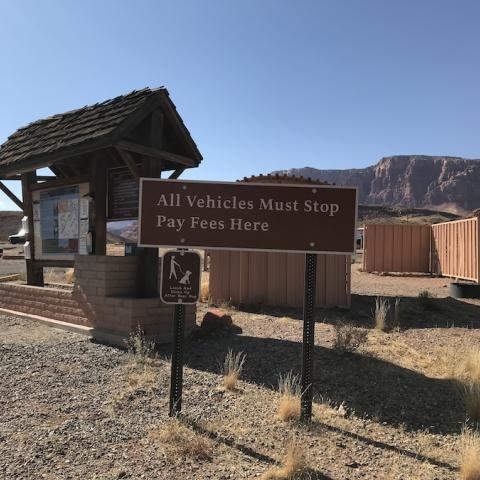
In a continuing effort to make Glen Canyon National Recreation Area in Utah safer for all types of recreation, the park is establishing wakeless zones in three side canyons on Lake Powell: Antelope, Labyrinth and Lost Eden canyons.
Enforcement of the new wakeless zones began this Thursday, May 25.
A review by Glen Canyon staff has shown motorized watercraft travelling above wakeless speed often violates existing speed and proximity laws, and presents a safety hazard when sharing these narrow canyons with non-motorized watercraft such as kayaks. Maintaining wakeless speed throughout these canyons will prevent collisions, swamping or capsizing of other watercraft and alleviate a growing visitor use conflict.
“With 96 major side canyons and 1,960 miles of shoreline on Lake Powell, there is plenty for people to enjoy in all types of motorized and non-motorized watercraft while being safe and respectful of your fellow boaters,” said William Shott, superintendent of Glen Canyon National Recreation Area and Rainbow Bridge National Monument. “Following the rules of the lake, combined with measures like wearing a life vest and having a designated driver, will save lives and provide a better experience for everyone.”
Buoys with signs alerting boaters to the requirement to travel at wakeless speed have been posted at the mouths of the three canyons. Violations will result in a citation from law enforcement rangers.
If the new wakeless zones prove beneficial for park users, Glen Canyon may consider designating some side canyons for non-motorized use only.
Visitors to Glen Canyon use a variety of watercraft on Lake Powell, including houseboats, powerboats, personal watercraft (“jet skis”), kayaks and paddleboards. Lake Powell accounts for 13 percent of Glen Canyon National Recreation Area, which encompasses 1.25 million acres in total. The lake provides access to many parts of the park, connecting visitors with hikes to slot canyons, gulches, waterfalls, hanging gardens and natural bridges.



 Support Essential Coverage of Essential Places
Support Essential Coverage of Essential Places






